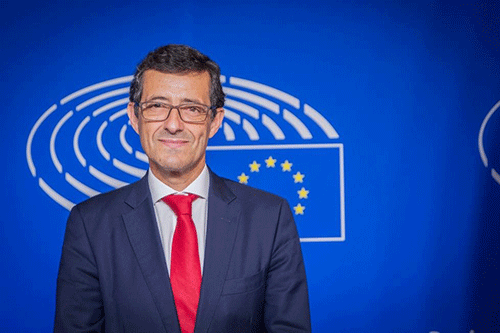BRUSSELS – No nation is being coerced by the European Union (EU) to ratify a new 20-year partnership pact. This is according to Carlos Zorrinho, chair of the European Parliament’s Delegation to the African, Caribbean, and Pacific (ACP) with the European Union joint assembly.
The framework for EU relations with countries in ACP is outlined in the agreement. The new cooperation agreement will act as the new international accord that governs the EU’s interactions with 79 nations. The states comprise 15 Pacific, 16 Caribbean, and 48 African nations.
Namibia, however, last month declared it would not sign the updated partnership agreement in its present format. “The two countries that are having problems with the deal are Namibia and Jamaica, and the talks are proceeding well. Participating in this multilateral strategy is voluntary, but it is preferable because it offers options and benefits all sides equally,” said Zorrinho last week during a EU study tour in Belgium for journalists from Botswana, Lesotho, Namibia and Zambia.
Last month, Deputy Prime Minister Netumbo Nandi-Ndaitwah said in an address to the National Assembly, that the attorney general in 2021 identified specific issues and prescriptive provisions that require certain actions not in accordance with the country’s international relations and cooperation policy, its legal framework, or its constitution.
According to Nandi-Ndaitwah, the issues were not resolved at the time of signing in early November 2023, despite Namibia having informed the EU of these obstacles. “Additional aspects of the new partnership agreement also raised some concerns, in particular Article 97, which states that ‘no treaty, convention, agreement or arrangement of any kind between one or more member states of the EU and one or more OACPS members shall impede the implementation of this agreement,” Nandi-Ndaitwah said at the time.
Meanwhile, Zorrinho explained that the new EU agreement is a strong alternative tool to a divided world.
“Countries who choose to be part of this multilateral approach do not lose the possibility of doing business with other major world players,” he assured.
He elaborated that the goal of the new agreement is to increase the EU and ACP nations’ ability to work together to address global issues. Over two billion individuals are protected by the deal.
The document establishes shared values and addresses six key areas of concern: human rights and democracy, climate change, human and social development, peace and security, and migration and mobility.
Relations
Namibia and the EU currently have a cordial relationship.
Just recently, Namibia and the EU approved the roadmap for a strategic partnership on sustainable raw material value chains and renewable hydrogen. As such, Namibia’s green ambitions are going to be supported by investments totalling just over N$20 billion (€1 billion) from the European Union (EU), its member states and European financial institutions. Furthermore, to promote Southern African economic growth and integration, the EU has pledged to fund research to examine how to optimally utilise the Port of Walvis Bay as a logistics and industrial hub. -mndjavera@nepc.com.na



